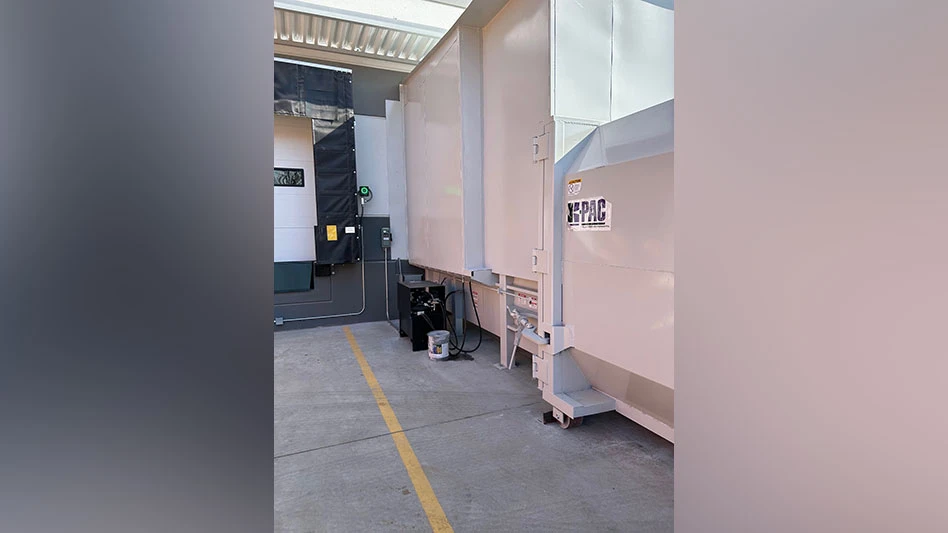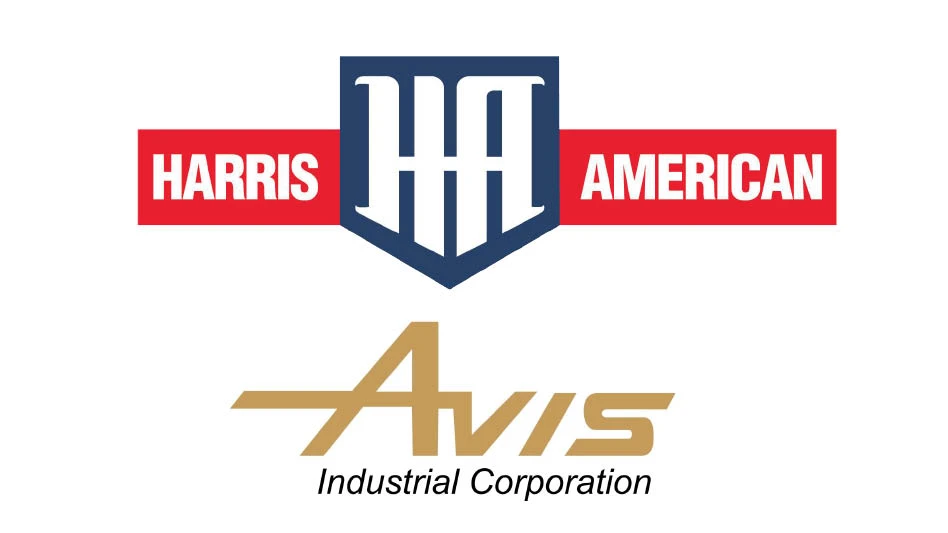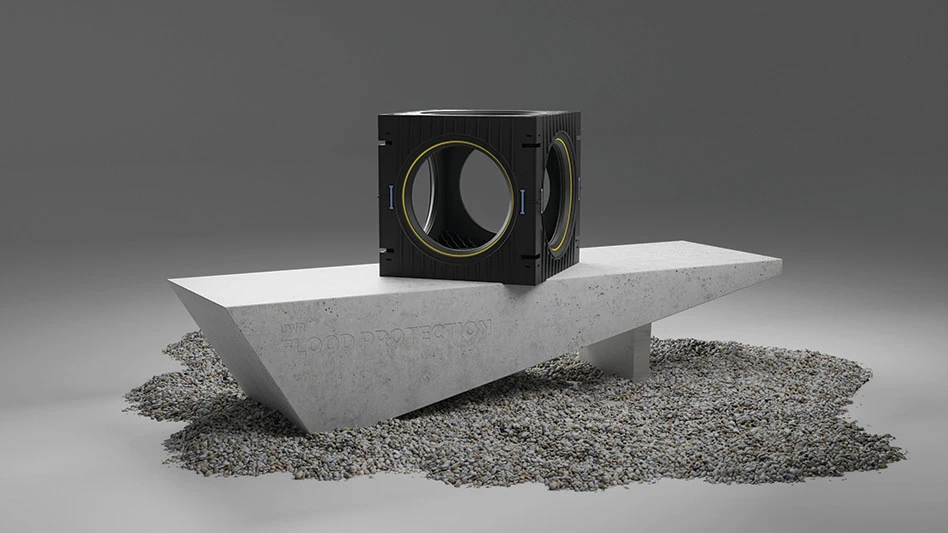
Photo courtesy of Novelis
Novelis Inc., a producer of flat-rolled aluminum products using recycled aluminum, says it has produced an aluminum coil made entirely from 100 percent-recycled-end-of-life-automotive scrap. The achievement is the result of Novelis’ ongoing journey to increase the amount of recycled content in its products in collaboration with industry partners and automakers.
RELATED: Novelis to increase recycled content to 75 percent
The company, which is headquartered in Atlanta with its European regional office near Zurich, says the product was developed and produced for the European automotive market and marks a significant step toward greater circularity and sustainability in the automotive industry.

Michael Hahne, vice president and general manager, Automotive, at Novelis Europe tells Recycling Today the slab and coil, weighing approximately 10 metric tons, were produced at the company's European operations.
"[T]he project involved sorting both zorba and twitch by alloy family," he says. "The sorting was done by 5xxx and 6xxx alloys, and it was carried out with partners on an industrial scale."
This coil produced is suitable for car body outer skin applications, meeting surface quality and formability requirements, according to Novelis, and reinforces the company’s commitment to enabling a sustainable aluminum industry while maintaining the highest standards of quality, strength and performance.
Novelis sourced the aluminum scrap for the coil through the Automotive Circularity Platform (ACP), which it began in the summer of 2023 with Thyssenkrupp Materials Services, one of the world's leading mill-independent materials distribution and supply chain service providers. As an open platform, ACP aims to streamline access to high-quality end-of-life material for recycling by digitalizing the market for secondary materials, enhancing supply chain efficiency and maximizing material recovery from vehicles at the end of the consumer-use cycle, Novelis says.
Hahne says, "The ACP methodology was utilized to link and orchestrate the existing but fragmented recycling ecosystem in Europe more efficiently. Different streams of the value chain, including dismantling, shredding, sorting, logistics and warehousing, were connected efficiently through this innovative platform. The variety of scrap sourced through ACP enabled the production of a product entirely free of primary aluminum."
He adds that ACP is scaling up in Europe but has the potential to migrate into other regions.

end-of-life automotive scrap
"Our automotive customers are constantly looking for ways to decarbonize their products while keeping them light, safe and affordable, and that's why they turn to us," said Michael Hahne, vice president and general manager, Automotive, Novelis Europe. "Producing aluminum from 100 percent-end-of-life-vehicle scrap is not only a testament to our dedication to a circular future for aluminum and enhancing the supply of the critical material, it also is a groundbreaking achievement showcasing the potential for significant environmental benefits and the ability to meet the high-performance demands of modern automotive production."
Novelis is now working to expand the adoption of this technology, enabling automakers to incorporate higher recycled content into future vehicle designs. By increasing industry participation and enhancing the supply chain for end-of-life aluminum scrap, the company says it aims to accelerate the transition to a more circular automotive sector.
"Novelis has conducted this trial to push the limits of circularity and validate its capabilities," Hahne says. "The main hurdle for industrialization of high-recycled-content aluminum solutions is obtaining the critical mass of scrap via the involved ecosystem.
"All of Novelis' automotive products in Europe already contain more than 60 percent recycled content from pre- and postconsumer sources on average, with certain customers receiving products with up to 85 percent recycled content," he continues. "Novelis has continuously enhanced its portfolio of high-recycled-content alloys and will continue to do so. Initially, we recycled mainly production scrap, but now it is a mix of pre- and postconsumer recycling material. This composition will progressively evolve towards a higher share of end-of-life recycling material in the future with the intention to work towards the industrial scale of our ultimate circularity demonstrator."
Hahne adds, "The timeline for market readiness will depend on the ramp-up of the ecosystem, collaboration with industry partners and OEMs committing to the ecosystem as well as integrating recycling concepts into their vehicle designs. "
Sponsored Content
Redefining Wire Processing Standards
In nonferrous wire and cable processing, SWEED balances proven performance with ongoing innovation. From standard systems to tailored solutions, we focus on efficient recovery and practical design. By continually refining our equipment and introducing new technology, we quietly shape the industry—one advancement at a time.
Novelis says it believes expanding the use of end-of-life scrap in aluminum production will further enable the automotive sector to reduce its reliance on virgin materials, adding that the introduction of 100 percent-end-of-life recycled aluminum into automotive production potentially could dramatically lower the industry's environmental footprint while advancing a more circular economy.
*This article was updated March 14, 2025, to include comments from Michael Hahne.
Get curated news on YOUR industry.
Enter your email to receive our newsletters.
Latest from Recycling Today
- Enfinite forms Hazardous & Specialty Waste Management Council
- Combined DRS, EPR legislation introduced in Rhode Island
- Eureka Recycling starts up newly upgraded MRF
- Reconomy Close the Gap campaign highlights need for circularity
- Nickel carbonate added to Aqua Metals’ portfolio
- EuRIC, FEAD say End-Of-Life Vehicle Regulation presents opportunity for recyclers
- Recyclers likely to feel effects of US-China trade war
- BCMRC 2025 session preview: Navigating battery recycling legislation and regulations









